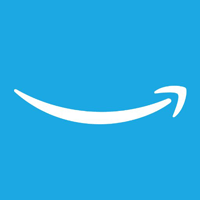Salesforce Reveals Commerce Cloud (Already)

Over the next decade, 86 percent of retailers plan to implement a unified commerce platform, and Salesforce, which picked up cloud commerce platform Demandware this past summer, wants to be a contender in those buying decisions - sooner, rather than later.
In less than three months since Salesforce completed the acquisition of Demandware ($2.8 billion), it has announced the release of Commerce Cloud, which Elana Anderson, senior VP of worldwide marketing for Commerce Cloud at Demandware, told Website Magazine provides comprehensive digital commerce across Web, mobile, social and store.
Commerce Cloud speaks to today's interrupted shopping process, where the historical idea of conversion rate, according to Anderson, is no longer true since consumers are taking multiple steps and using multiple devices to complete a purchase. What's more, since much of the time people are spending online is within apps, retailers are forced to rethink how they interact with consumers while struggling with scattered data, duplicate customer profiles, and myriad integrations between systems that are brittle and breakable. Retailers, says Anderson, are looking for a different answer. Salesforce believes it has that answer in Commerce Cloud, a path that Demandware was already on but Anderson believes will be made stronger by the acquisition.
"Salesforce has owned the customer and the customer profile, but they didn't own that shopping behavior or transactional data which they had to pull from somewhere else," said Anderson.
Now with Commerce Cloud, Salesforce owns all of that data from the customer profile and demographic information to visitor behavior and even Internet of Things (IoT) insights (e.g., usage, churn rate, etc.).
With that data, Commerce Cloud, at its best, will be able to automate all aspects of the customer journey to improve conversion, omnichannel transactions and brand loyalty, from personalized on-site recommendations (using Einstein) and product sorting (based on predictive intelligence) to shared inventory across channels and highly customized emails.
At its worst, well it's hard to tell, but Salesforce's speed to market was very fast and at a critical time of year. Most retailers (those already with Demandware), however, will benefit from these capabilities over time as there are no major changes to be made. The product will have some branding changes, but that's the "skin of the product."
"The reality from a product perspective [is that] we are on a journey," said Anderson. "Some of the work we already done pre-dating because we partnered with Salesforce before the acquisition. Both have an open architecture strategy and retailers are already leverage the platform in an integrated way. So over time, we are in the process of strategizing what to do first, will start to tighten up that integration and build that platform into a singular platform."
Given where we are in the timeline of the year, says Anderson, no retailers are going to launch new websites in October of course. Retailers, however, will likely see the pros and cons of their current platforms in a much clearer light when the peak season begins. So while replatforming isn't going to happen until the New Year, ecommerce vendors see a very active sales pipeline during the winter months, which explains the speed to market as does Salesforce's upcoming annual event, Dreamforce.
Announcing Commerce Cloud so quickly will allow the company to show stakeholders a projected return on the multi-billion dollar acquisition it made, and motivate the customers coming from Demandware.









